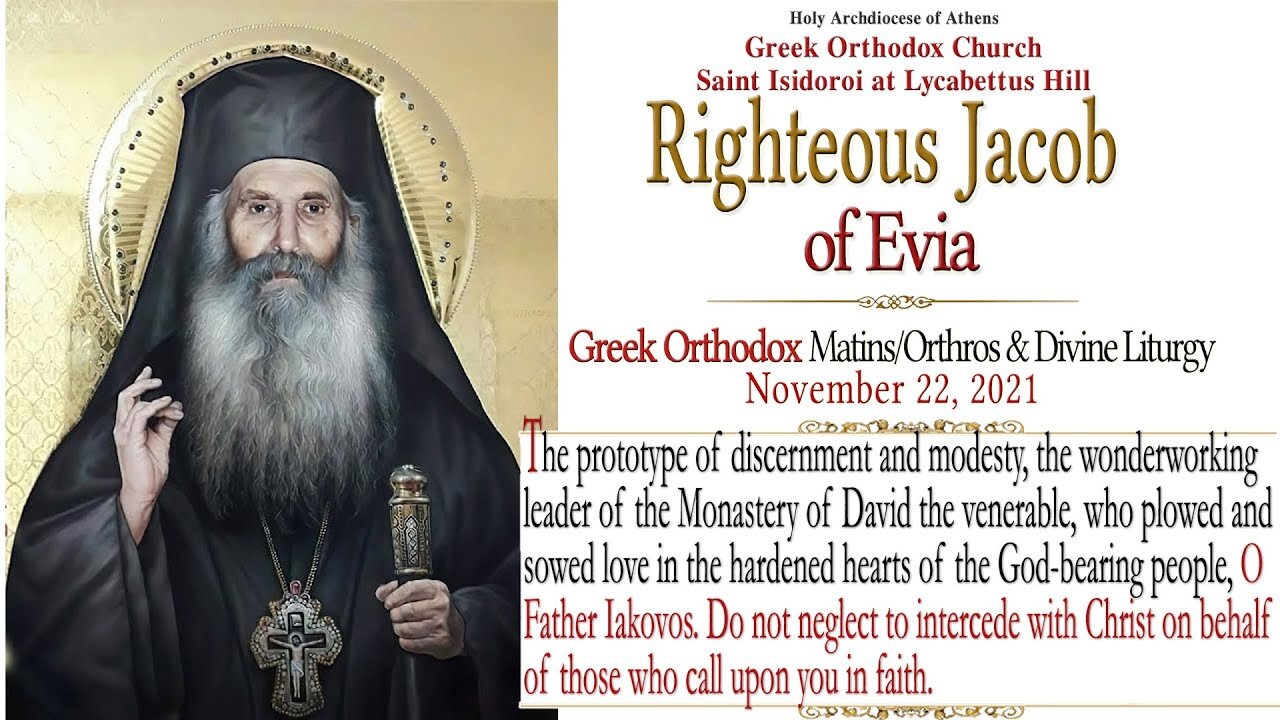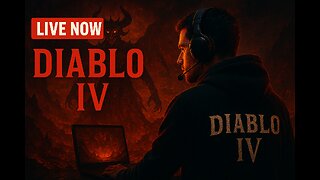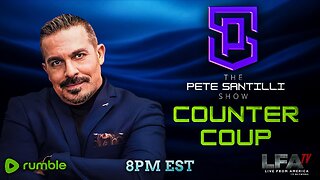Premium Only Content

November 22, 2021, SAINT JACOB OF EVIA | GREEK ORTHODOX DIVINE LITURGY LIVE STREAM
A vessel of grace and dwelling-place of the Holy Spirit, was Elder Iakovos Tsalikis, one of the most important and saintly personalities of our day, a great and holy Elder, a true friend of God.
He was a living incarnation of the Gospel, and his aim was sanctification. From early childhood he enjoyed praying and would go to different chapels, light the icon-lamps and pray to the saints. In one chapel in his village, he was repeatedly able to speak to Saint Paraskevi. He submitted to God’s call, which came to him when he was still a small child, denied himself and took up the Cross of Christ until his last breath. In 1951, he went to the Monastery of Saint David the Elder, where he was received in a miraculous manner by the saint himself.
He was tonsured in November 1952. As a monk he submitted without complaint and did nothing without the blessing of the abbot. He would often walk four to five hours to meet his Elder, whose obedience was as parish-priest in the small town of Limni. The violence he did to himself was his main characteristic. He didn’t give in to himself easily. He lived through unbelievable trials and temptations. The great poverty of the monastery, his freezing cell with broken blinds and cold wind and snow coming in through the gaps, the lack of the bare essentials, even of winter clothing and shoes, made his whole body shiver and he was often ill. He bore the brunt of the spiritual, invisible and also perceptible war waged by Satan, who was defeated by Iakovos’ obedience, prayer, meekness and humility. He fought his enemies with the weapons given to us by our Holy Church: fasting, vigils and prayer.
His asceticism was astonishing. He ate like a bird, according to his biographer. He slept on the ground, for two hours in twenty-four. The whole night was devoted to prayer. Regarding his struggle, he used to say: ‘I do nothing. Whatever I do, it’s God doing it. Saint David brings me up to the mark for it’.
His humility, which was legendary and inspiring, was his main characteristic. The demons which were in the possessed people who went to the monastery cursed him and said: ‘We want to destroy you, to neutralize you, to exterminate you, but we can’t because of your humility’. He always highlighted his lack of education, his inadequacies and his humbleness. It was typical of him that, when he spoke, every now and again he’d say: ‘Forgive me’. He was forever asking people’s forgiveness, which was a sign of his humble outlook. Once, when he was invited to visit the Monastery of Saint George Armas, where the abbot was the late Fr. George Kapsanis, he replied: ‘Fathers, I’m a dead dog. What will I do if I come to see you? Pollute the air?’ He always had the sense that he was a mere nothing.
And when he became abbot he always said that he wasn’t responsible for what happened in the monastery: ‘Saint David’s the abbot here’, he maintained. When he served with other priests, he went to the corner of the altar, leaving them to lead the service. When they told him: ‘This isn’t right, you’re the abbot of the monastery’, he’d reply: ‘Son, Saint David’s the abbot here’.
Although he didn’t seek office, he agreed to be ordained to the diaconate by Grigorios, the late Bishop of Halkida, on 18 December 1952. The next day he became a priest. In his address after the ordination, the bishop said: ‘And you, son, will be sanctified. Continue, with God’s power, and the Church will declare you [a saint]’. His words were prophetic. He was made abbot on 27 June, 1975, by Metropolitan Chrysostomos of Halkida, a post he held until his death.
As abbot he behaved towards the fathers and the visitors to the monastery with a surfeit of love and understanding and great discernment. His hospitality was proverbial. Typical of him was the discernment with which he approached people. He saw each person as an image of Christ and always had a good word to say to them. His comforting words, which went straight to the hearts of his listeners, became the starting-point of their repentance and spiritual life in the Church. The Elder had the gift, which he concealed, of insight and far-sight. He recognized the problem or the sin of each person and corrected them with discretion. Illumined by the Holy Spirit he would tell each person, in a few words, exactly what they needed. Saint Porfyrios said of the late Elder Iakovos: ‘Mark my words. He’s one of the most far-sighted people of our time, but he hides it to avoid being praised’.
Watch live from the Greek Orthodox Church of Saint Isidoroi at Lycabettus Hill, the Matins/Orthros and the Divine Liturgy.The small church of Saint Isidoroi belongs to the Holy Archdiocese of Athens and is located on the west side of Lycabettus Hill in Athens, built inside the largest cave on the hill. According to tradition, this cave was a place of ascetic life of the Christians of the first centuries.
-
 2:38:55
2:38:55
Greek Orthodox Church St. Isidoroi, Athens, Greece
2 years agoNovember 11, 2022, Saint Menas of Egypt | Greek Orthodox Divine Liturgy
3671 -
 LIVE
LIVE
Tundra Tactical
2 hours agoCrits & Giggles Diablo IV On A Friday Night!
128 watching -
 LIVE
LIVE
JdaDelete
19 hours ago $0.01 earnedMetal Gear Solid Δ: Snake Eater | Part 1 - Pretty Good?
148 watching -
 LIVE
LIVE
Biscotti-B23
4 hours ago🔴 LIVE $5000 SINGLE ELIM TOURNAMENT 🏆 DEMON SLAYER HINOKAMI CHRONICLES 2
35 watching -
 LIVE
LIVE
SavageJayGatsby
19 hours agoFriend Friday | MicroWorks | $300 Weekly Goal for Spicy Bite Saturday | 250 Follower Goal!
49 watching -
 LIVE
LIVE
Edge of Wonder
3 hours agoCattle Mutilations, Chupacabra Sightings & NASA’s Voyager Goes Dark?
247 watching -
 LIVE
LIVE
Mally_Mouse
23 hours agoFriend Friday!! 🎉 - Let's Play! - Microworks
99 watching -
 LIVE
LIVE
Quite Frankly
2 days agoHookah Special: Found Footage, Workplace Folly, More Cringe Music Vids (8/23/25 Re-Run)
341 watching -
 LIVE
LIVE
LFA TV
13 hours agoLFA TV ALL DAY STREAM - FRIDAY 8/29/25
725 watching -
 12:38
12:38
AlaskanBallistics
19 hours agoNutrek Optics Coppertag 5-25x56mm Review
2.35K